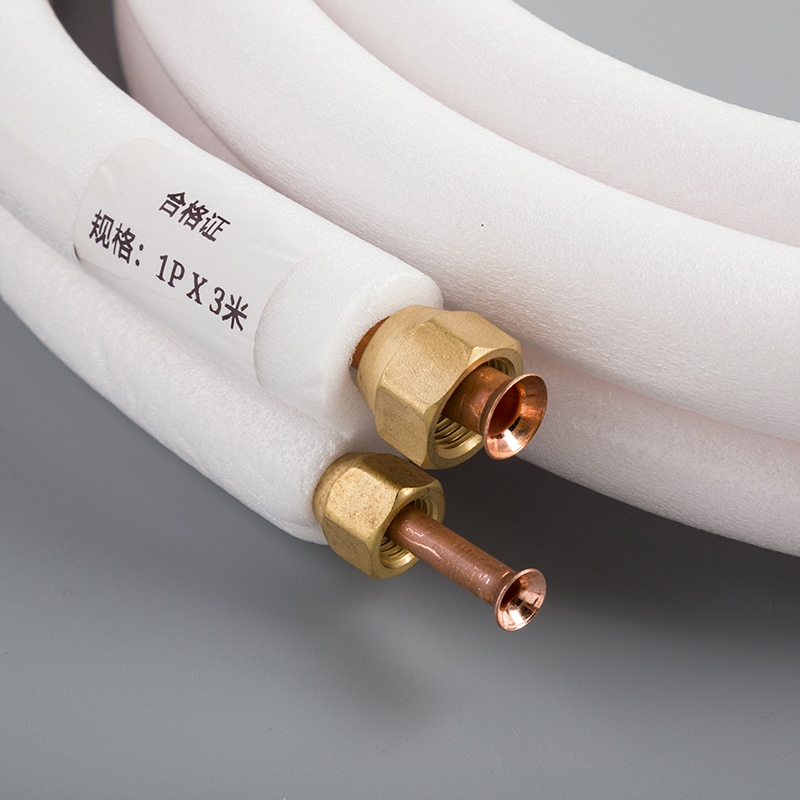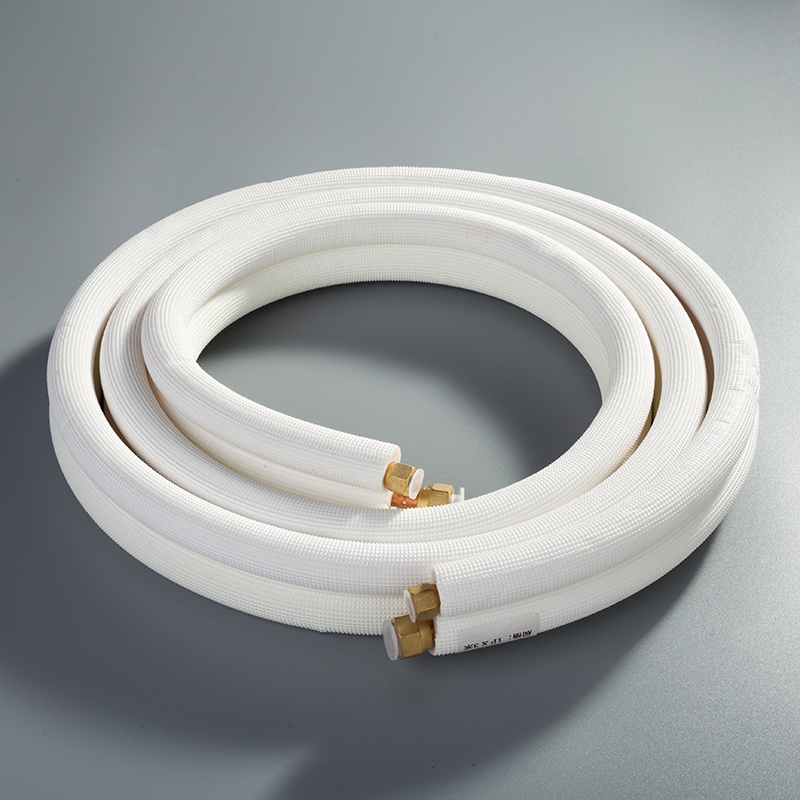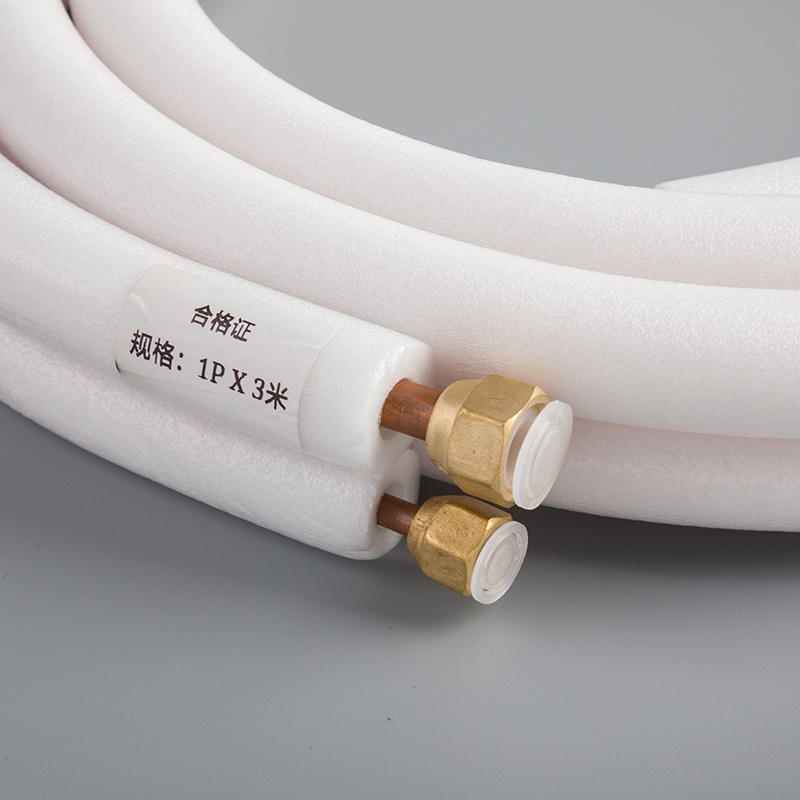Why Accurate Copper Pipe Measurement Matters

Why Accurate Copper Pipe Measurement is Important
Precision in plumbing and construction is essential for creating efficient and long-lasting systems. Baoyuan, a leading manufacturer of pure copper connecting pipes for air conditioners, understands the critical role that accurate copper pipe measurement plays in various applications, including residential, commercial, and industrial settings. Accurate measurements prevent costly mistakes and ensure proper fit and function. Inaccurate measurements can lead to leaks, inefficient water flow, and structural failures. Proper tools and techniques for measurement are essential for maintaining system integrity. For more information on our products, visit https://copperpipe.net/products/.
Understanding Copper Pipes

Types of Copper Pipes
Type K
Type K copper pipe has the thickest walls among all types. This type offers the highest durability. Commercial plumbing systems often use Type K pipes. HVAC systems also benefit from the strength of Type K. Sprinkler systems, especially those installed underground, rely on Type K for its robustness.
Type L
Type L copper pipe serves a versatile role in various applications. Interior water supply systems frequently use Type L pipes. Hot water heating systems also depend on Type L for reliable performance. Fire protection systems, including sprinklers, utilize Type L due to its balanced wall thickness. Both underground and above-ground installations can use Type L pipes effectively.
Type M
Type M copper pipe is known for its affordability. Domestic water systems often choose Type M due to its cost-effectiveness. The thinner walls of Type M make it lighter and easier to handle. Residential properties benefit from the ease of installation provided by Type M pipes.
Common Uses of Copper Pipes
Residential Plumbing
Residential plumbing systems extensively use copper pipes. Type M pipes are popular in homes due to their affordability. Type L pipes provide a durable option for water supply lines. Homeowners appreciate the reliability and longevity of copper pipes in their plumbing systems.
Commercial Plumbing
Commercial plumbing systems require robust materials. Type K and Type L pipes offer the necessary durability. These pipes handle higher pressures and larger volumes of water. Commercial buildings benefit from the strength and reliability of copper pipes.
Industrial Applications
Industrial applications demand high-performance materials. Type K pipes are suitable for heavy-duty uses. HVAC systems in industrial settings rely on the durability of Type K. Underground water mains in industrial facilities often use Type K pipes. The versatility of copper pipes makes them ideal for various industrial applications.
Write a 'Why' blog post on 'Why accurate copper pipe measurement is important'
Accurate copper pipe measurement ensures the efficiency and reliability of plumbing and HVAC systems. Precision in measurement prevents leaks, maintains proper water flow, and avoids structural failures. Baoyuan emphasizes the importance of using the right tools and techniques for accurate measurements.
Tools for Measurement
Tape Measure
A tape measure provides a quick way to measure the length of copper pipes. The flexible nature of a tape measure allows it to wrap around pipes easily. This tool is essential for measuring both short and long sections of pipe.
Calipers
Calipers offer precise measurements of pipe diameter. This tool can measure both the outer and inner diameters of copper pipes. Calipers ensure that the pipe fits correctly with other components.
Pipe Micrometers
Pipe micrometers provide highly accurate measurements of wall thickness. This tool is crucial for determining the type of copper pipe needed for specific applications. Pipe micrometers help in maintaining the integrity of the plumbing system.
Techniques for Accurate Measurement
Measuring Diameter
Measuring the diameter of a copper pipe involves using calipers. Place the calipers around the pipe and read the measurement. Ensure that the calipers are perpendicular to the pipe for an accurate reading.
Measuring Length
Use a tape measure to determine the length of the copper pipe. Start from one end of the pipe and extend the tape measure to the other end. Record the measurement to ensure the pipe fits the required space.
Measuring Wall Thickness
To measure wall thickness, use a pipe micrometer. Place the micrometer on the edge of the pipe and tighten it until it fits snugly. Read the measurement on the micrometer scale. Accurate wall thickness measurement ensures the correct type of copper pipe is used.
Implications of Accurate Measurements
Ensuring Proper Fit and Function
Avoiding Leaks
Accurate copper pipe measurement plays a crucial role in preventing leaks. Properly measured pipes fit snugly, reducing the risk of gaps where water can escape. Leaks can lead to significant water damage and costly repairs. Ensuring precise measurements helps maintain the integrity of the plumbing system.
Ensuring Proper Flow
Correct pipe sizing ensures optimal water flow. Incorrect measurements can result in restricted water flow or excessive pressure. Both scenarios can cause inefficiencies and potential damage to the system. Accurate measurements help maintain a consistent and reliable water supply.
Cost Efficiency
Reducing Waste
Precision in measuring copper pipes minimizes material waste. Incorrectly cut pipes often need replacement, leading to unnecessary expenses. Accurate measurements ensure that each piece of pipe is used effectively, reducing overall project costs.
Preventing Rework
Accurate measurements prevent the need for rework. Misaligned or improperly sized pipes require additional labor to correct. This increases both time and cost. Proper measurements from the start ensure that installations proceed smoothly and efficiently.
Safety Considerations
Preventing Structural Failures
Properly measured copper pipes contribute to structural stability. Incorrect measurements can compromise the strength of the plumbing system. This can lead to failures that pose safety risks. Accurate measurements ensure that the system remains robust and reliable.
Ensuring Compliance with Standards
Adhering to industry standards requires precise measurements. Regulatory bodies set specific guidelines for pipe sizing and installation. Accurate measurements ensure compliance with these standards, avoiding potential legal and safety issues.
Practical Tips for Accurate Measurement

Common Mistakes to Avoid
Incorrect Tool Usage
Incorrect tool usage often leads to inaccurate measurements. Many individuals use the wrong tools for specific tasks. For example, using a tape measure instead of calipers for diameter measurement results in errors. Proper training on tool usage ensures correct measurements.
Misreading Measurements
Misreading measurements frequently causes issues in plumbing projects. Many people misinterpret the scale on measuring tools. This mistake leads to incorrect pipe sizing. Clear understanding of measurement scales prevents such errors.
Best Practices
Double-Checking Measurements
Double-checking measurements guarantees accuracy. Professionals always verify measurements before cutting or installing pipes. This practice minimizes errors and ensures proper fit. Consistent verification enhances the reliability of plumbing systems.
Regular Tool Calibration
Regular tool calibration maintains measurement accuracy. Tools like calipers and micrometers require periodic calibration. This process ensures that tools provide precise readings. Consistent calibration prevents measurement discrepancies and maintains system integrity.
Accurate copper pipe measurement holds immense importance in plumbing and construction. Precision ensures proper fit, optimal water flow, and system integrity. Accurate measurements prevent leaks, reduce waste, and enhance safety. Baoyuan emphasizes adopting best practices for measurement accuracy. Regular tool calibration and double-checking measurements guarantee reliability. Accurate measurements lead to efficient and durable systems. For more information on Baoyuan products, visit Baoyuan Products.
See Also
Simple Steps for Measuring Copper Pipes Like a Pro
Quick Guide: Measuring Copper Pipe Like a Pro
Step-by-Step: Measuring Copper Pipe for DIY Projects


